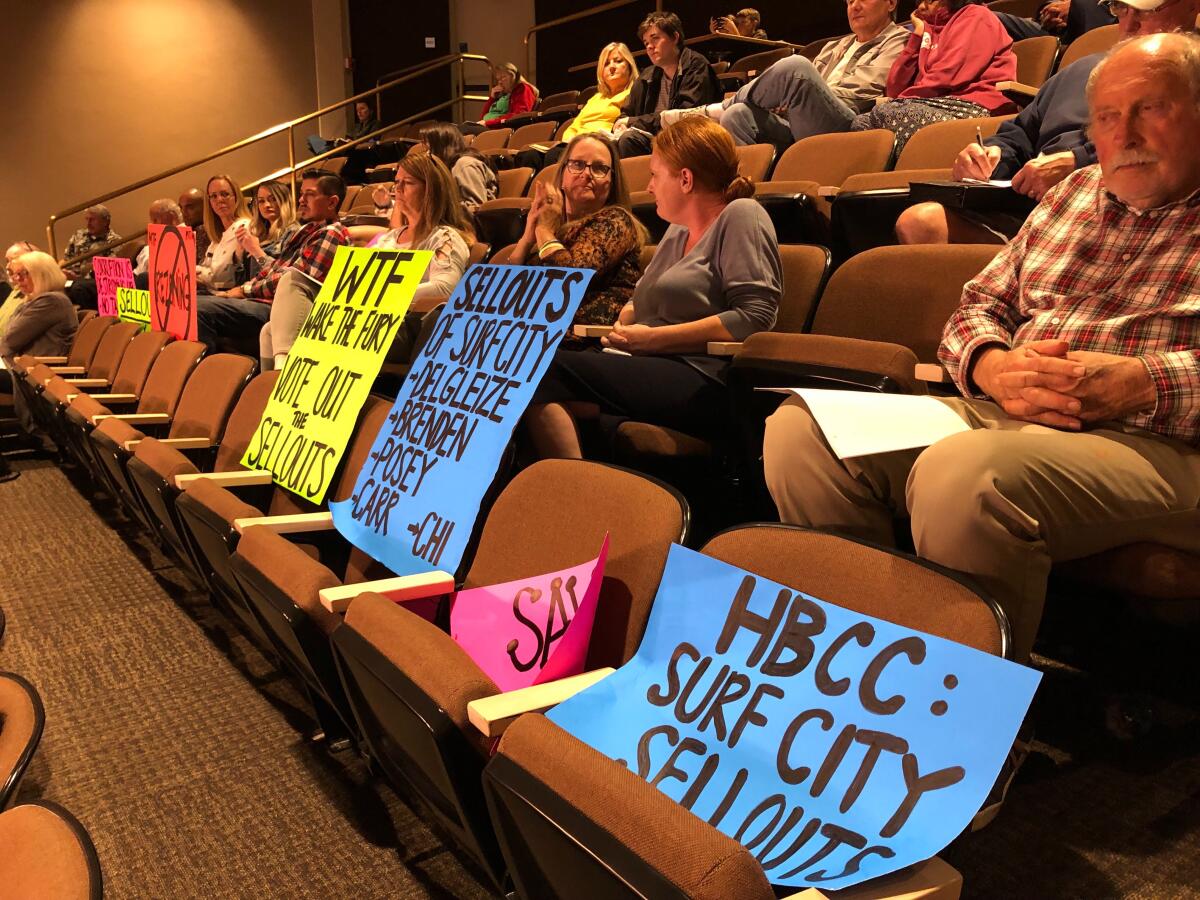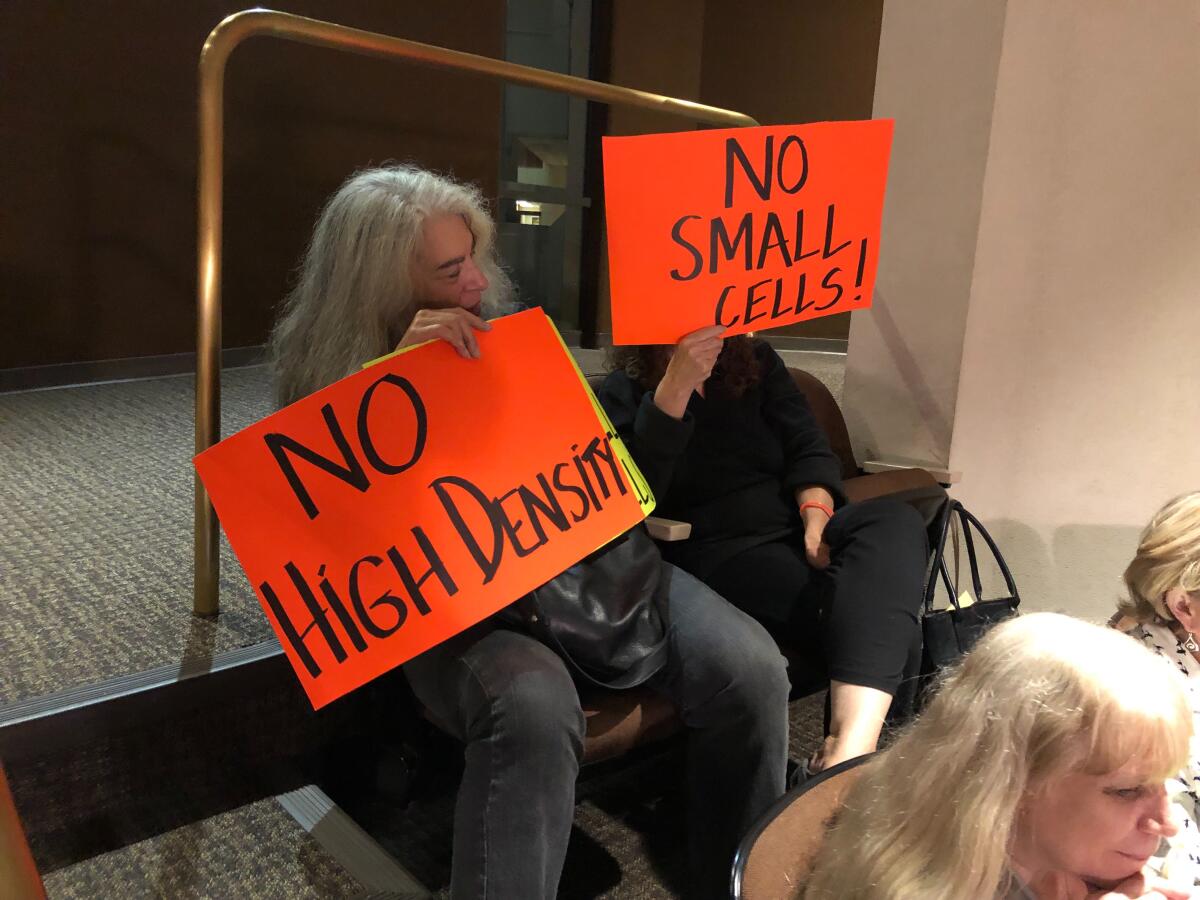Protesters oppose advancements for Magnolia Tank Farm redevelopment and call H.B. council ‘sellouts’

Community members turned out to Monday night’s Huntington Beach City Council meeting to voice displeasure with recent advancements on the Magnolia Tank Farm redevelopment project.
Huntington Beach Senior Planner Ricky Ramos presented the council with an update on the Magnolia Tank Farm Specific Plan in light of the Planning Commission’s Oct. 22 vote to amend the site’s zoning and provide necessary steps for future development on 29 acres at 21845 Magnolia St. that once contained an oil storage and pumping facility.
The City Council will have the final say on the approvals and held a study session on the topic before Monday’s regular meeting. It is tentatively scheduled to hold a public hearing Dec. 16.
Although site owner Shopoff Realty Investments has presented a vivid picture of plans to develop the area with up to 250 for-sale residential units, an “eco-lodge” with up to 175 market-rate rooms, 40 “budget-oriented, family/group overnight accommodations,” retail and dining spaces and public parking, city staff is currently working on “legislative land use changes only and establishing ... standards for future development,” Ramos said.
“At the moment, no specific development is actually proposed,” Ramos said.
Mauricio Escobar, a geologist with Roux, an environmental consulting group contracted to analyze the site, provided a report that aimed to dispel some inaccuracies about the history of the land’s use.
“Was the tank farm used as a landfill like Ascon? No,” Escobar said, referring to the 38-acre former landfill at Hamilton Avenue and Magnolia Street.
He also said there was never an airport on the tank farm (it was to the northwest of the property) and that three oil wells existed on the site, not up to 20, as some have said.
Crude oil and fuel oil (the heaviest type of oil) are the main chemicals of potential concern, Escobar said.
The California Department of Toxic Substances Control “is not going to issue a closure letter until contaminants of concern have been addressed,” Escobar said.
But several residents came out to voice strong opposition to actions to advance the tank farm redevelopment, displaying colorful signs accusing council members, who appoint planning commissioners, of being “sellouts.”
“Development mistakes have been made in the past, more particularly, this new century,” said resident Tim Geddes. “If that is not acknowledged ... the only option will be to change leadership in the city.”

Geddes called the proposed Magnolia Tank Farm development the “biggest affront to local residents” of southeast Huntington Beach, where he lives.
Geddes implored the council to consider the ”distinct probability that much of the site is contaminated” and to “fully investigate what common sense tells you is a problem site.”
“We do not need high-density development in our suburban neighborhoods — or even medium density,” Marija Sheldon said.
“How can you, in good conscience, be on board with development taking place on toxic soil and next door to Ascon?” Leanne Mulford said.
Mulford accused the council of being “totally tone deaf to the wants, needs and desires of the community.”
She called the Planning Commission’s vote “one of the latest atrocities.”
All the latest on Orange County from Orange County.
Get our free TimesOC newsletter.
You may occasionally receive promotional content from the Daily Pilot.




